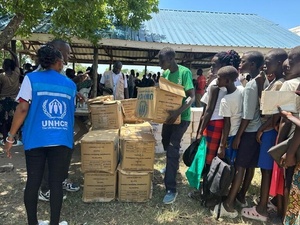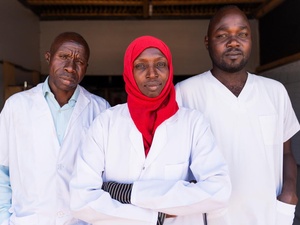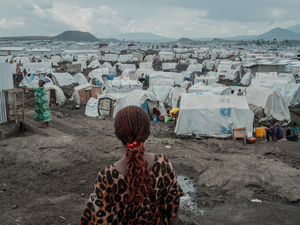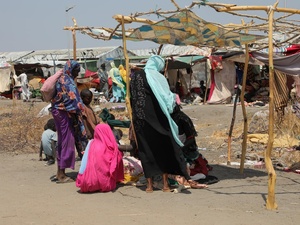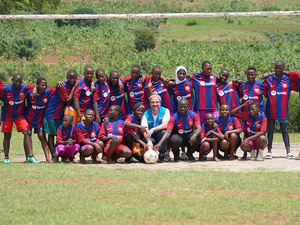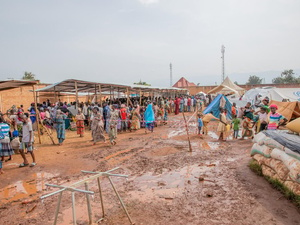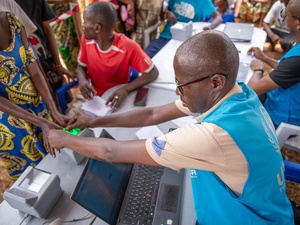UNHCR takes donors to Kyaka II settlement as flow of DRC refugees continues
UNHCR takes donors to Kyaka II settlement as flow of DRC refugees continues
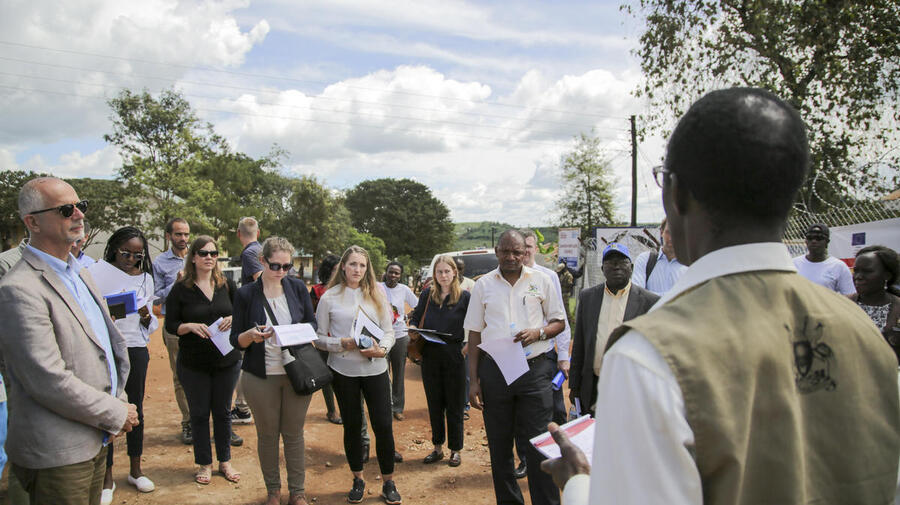
Ugandan doctor briefs visiting ambassadors and diplomats about health care services for refugees and hosts at Bujiubuli Health Centre III in Kyaka II, Kyegwega district
UNHCR, the UN Refugee Agency organized a day field trip to Kyegegwa’s Kyaka II refugee settlement for representatives from several donor countries. The aim of the visit was to show solidarity with refugees and appreciate the efforts and challenges of delivering protection and humanitarian assistance to new arrivals and refugees in protracted displacement.
UNHCR Representative, Joel Boutroue and Commissioner for Refugees at the Office of the Prime Minister (OPM), Gerald Menhya accompanied the delegation, consisting of 18 ambassadors and diplomats from Belgium, Denmark, the European Union, France, Germany, Ireland, Sweden, Switzerland, Russia and the United States of America. Partner organizations joined the dignitaries upon arrival in Kyaka II, including African Humanitarian Action, American Refugee Committee, Danish Refugee Council, Good Neighbours, International Rescue Committee, OXFAM and the UN Migration Agency (IOM).
The visit began at Bujiubuli Health Centre III, serving about 141,000 refugees and local Ugandans. This is the main permanent government health facility in Kyaka II, with inpatient and outpatient departments, mental health clinic, nutrition services, HIV/AIDS prevention and care, and a maternity ward. The hospital also offers Ebola and cholera prevention and treatment services.
“This hospital is too small to cater for our needs,” said Chantal, a women’s representative from the Democratic Republic of the Congo (DRC). “In the maternity ward you’ll find sometimes three new mothers and their newborns sharing the same bed.”
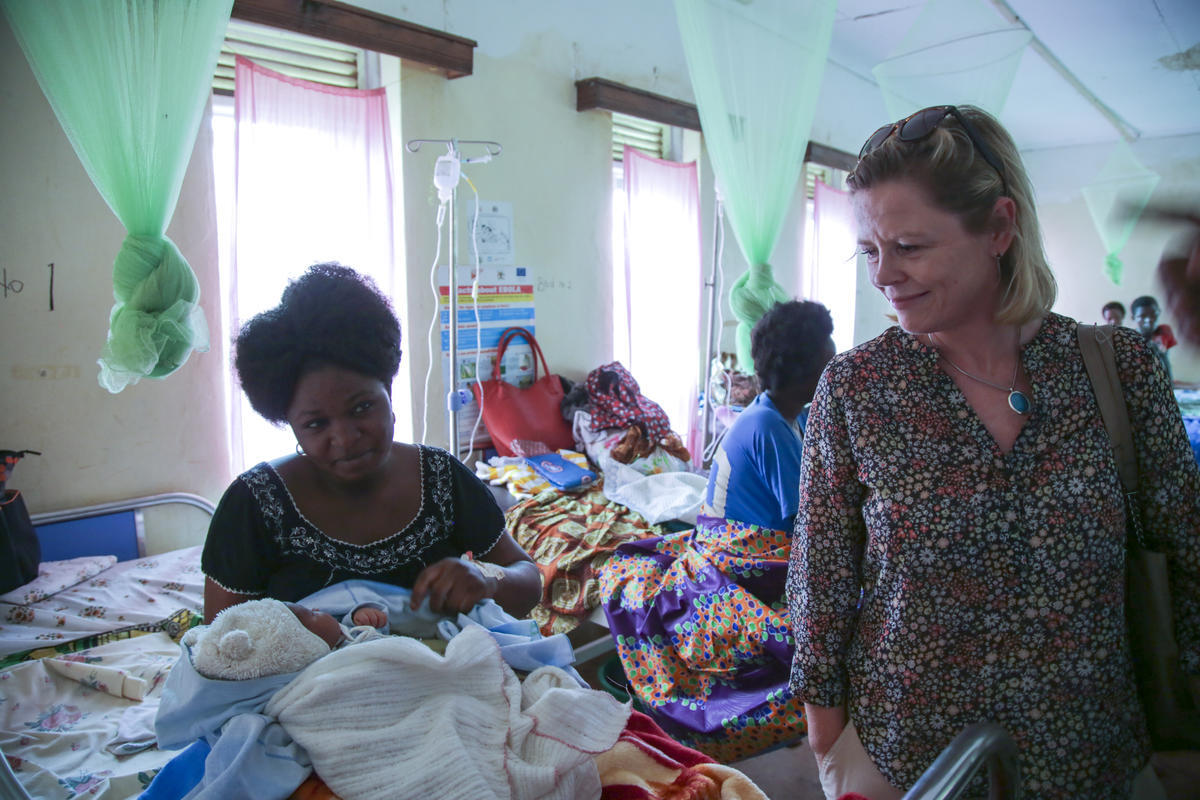
Ireland Deputy Head of Mission talks to a new mother in Bujiubuli hospital in Kyaka II
At Swese Reception Centre, currently hosting 1,300 new refugee arrivals, the diplomats observed biometric registration of Congolese who have recently sought asylum in Uganda. Like in any other reception facility across the country, all new arrivals undergo Ebola screening and nutrition assessment and receive basic assistance, including communal shelter, immunization and hot meals.
According to established procedures, new arrivals should spend no longer than 24 hours at the reception centre, but many end up staying up to 14 days before being relocated to their plot.
“We should reduce the risk of congestion at all cost,” said Boutroue adding that poor connectivity, incomplete non-food items kits and limited resources for refugee status determination interviews are all factors delaying the relocation of new arrivals from the reception centre to the settlement.”
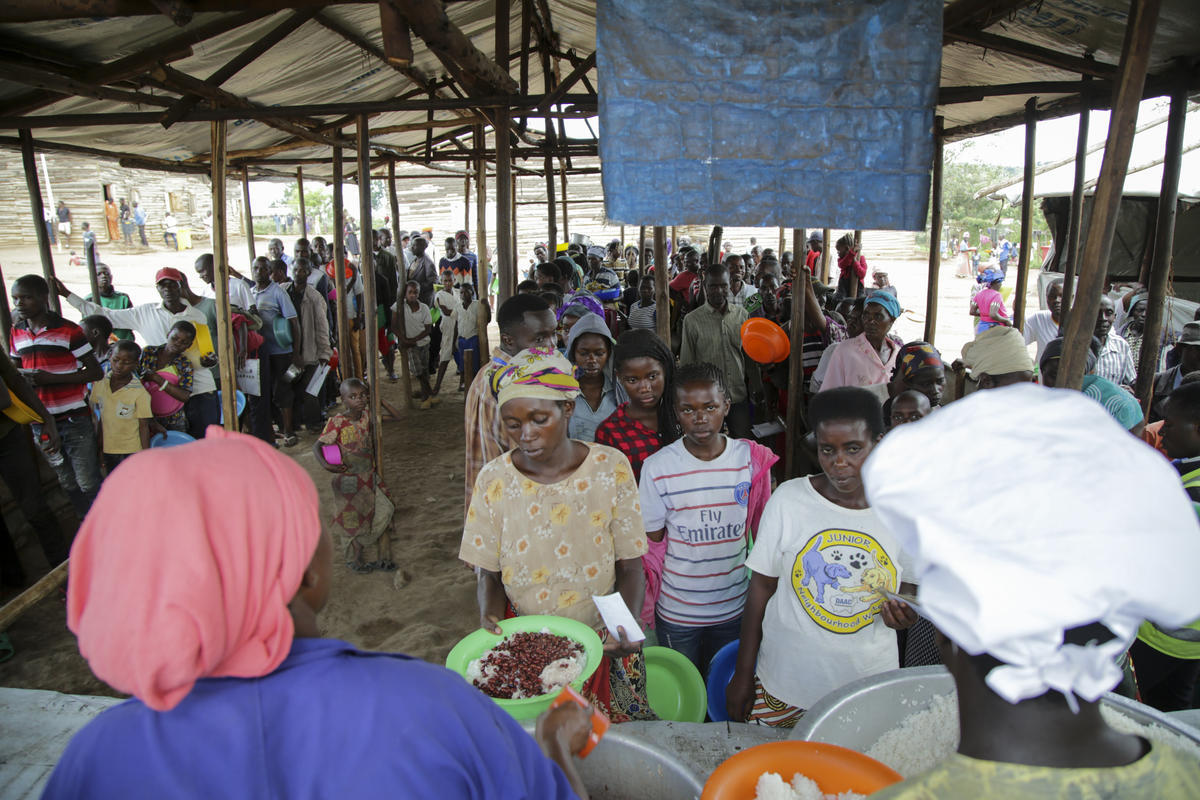
New refugee arrivals from the Democratic Republic of the Congo receive a hot meal in Kyaka II settlement, Kyegegwa distric
The diplomats also visited a new water supply system, recently launched by IOM. It provides safe drinking water to about 21,000 refugees and local Ugandans. But despite these efforts, access to water remains below standard as the ongoing refugee influx continues to put a strain on resources.
“This project is a great contribution towards the refugee response,” said Boutroue. “More efforts are needed to ensure that refugees and their neighbours receive enough water to meet their daily needs,” continued the UNHCR Representative adding that water supply systems is an area where development partners would play a critical role.
Before returning to Kampala, the delegation met with refugee women at Mukondo Women’s Centre to hear their concerns.
“We need your support to access alternative energy solutions,” said Chantal. “We often face sexual harassment and abuse when we walk long distances to fetch firewood.” Increased access to education and financial services are also top priorities for women and girls in Kyaka II, according to their representatives.
Opened in November 2018, the centre serves as a safe space for women and girls, including survivors of Sexual and Gender Based Violence (SGBV). About 46 women are currently enrolled in programmes such as cooperative management and financial literacy, tailoring and soap making.
Speaking on behalf of the diplomatic delegation, French Ambassador Jules-Armand Aniambossou thanked the Government of Uganda for showing the way in the protection and management of refugees. “We, donors, should certainly make more efforts to support this unique model,” said Aniambossou.
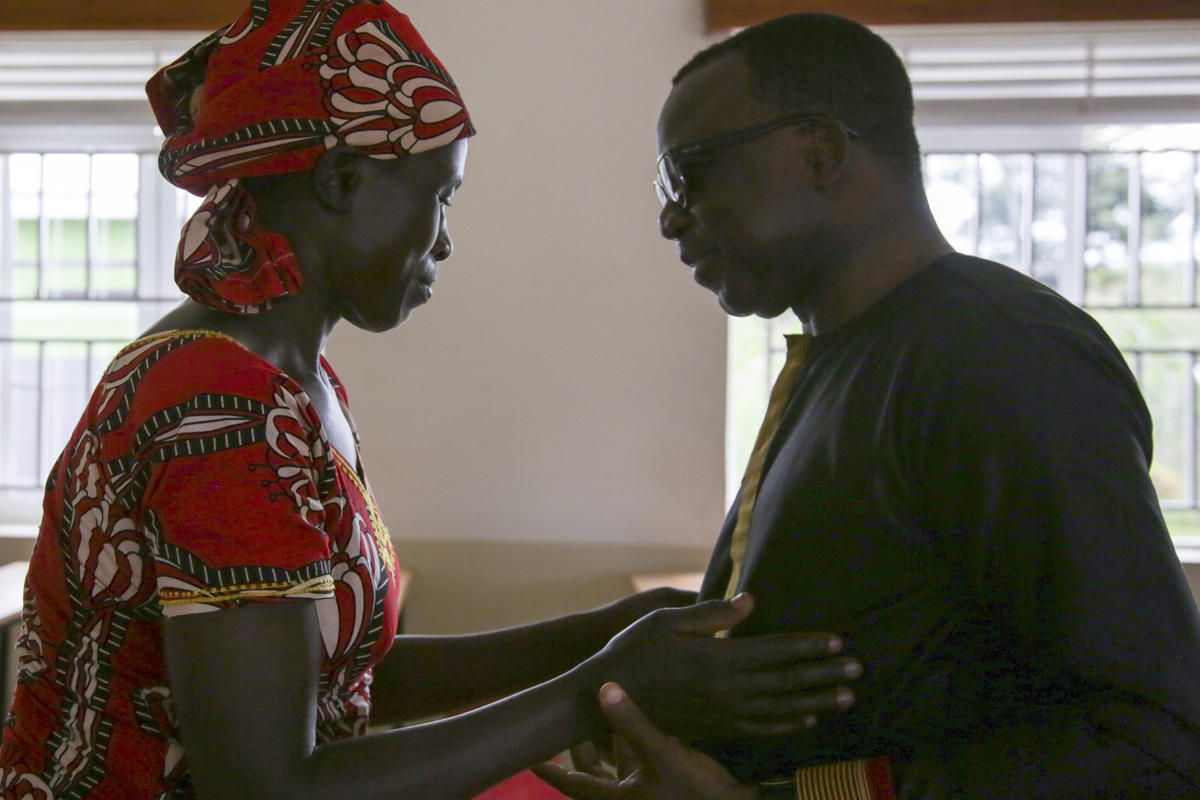
French Ambassador Jules-Armand Aniambossou greets a DRC refugee at Mukondo Women's Centre in Kyaka II, Kyegegwa district
Kyaka II’s refugee population has quadrupled since December 2017, following the arrival of tens of thousands of refugees from DRC fleeing conflict and inter-ethnic violence in North Kivu and Ituri. With more than 113,000 refugees already living in the settlement, Kyaka II will soon reach maximum capacity. OPM has already indicated that Isingiro’s Nakivale settlement, some 230 km south of Kyaka II, may be the next site to host new refugee arrivals from the DRC.
“More resources are needed to ensure we receive and assist refugees in dignity,” says Boutroue. “We cannot afford failing their very basic needs,” stressed the UNHCR Representative adding that the continued support from donors is essential to sustain Uganda’s progressive refugee policies.
On 17-18 December, the Government of Uganda will join the Global Refugee Forum in Geneva to showcase the country’s progressive refugee model and call for international solidarity to uphold its open door policy and advance inclusion of refugees in national development plans and government service delivery systems.
At the end of October, there were 1.36 million refugees in Uganda, including 855,000 from South Sudan, 390,000 from DRC and 45,000 from Burundi. About 94 per cent of live in settlements spread across 11 refugee-hosting districts and 6 per cent in urban centres, mainly Kampala.



